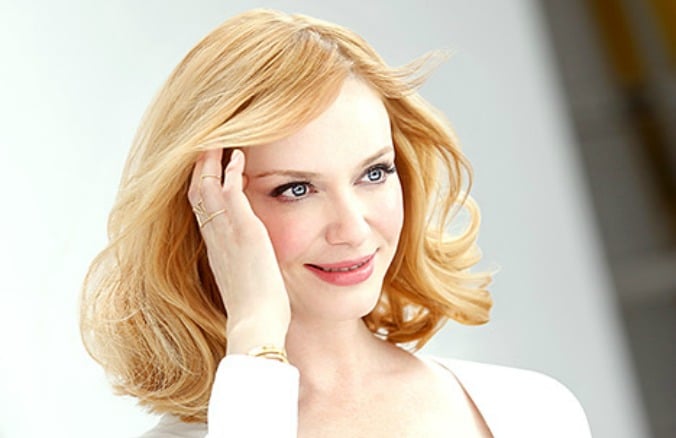
“I love your hair!” exclaims the spandex-clad woman next to me, panting heavily.
“You always keep it down! I can’t, I’m too hot.”
We just completed an end-of-Zumba-class ritual, which includes all of us pairing up and taking turns dancing our way though the room as others cheer and clap. Empowering? Perhaps. Humiliating? For sure. My hair, at this point, is a sweaty mop of frizzy, blonde curls. Everyone else in class has theirs in slick ponytails.
RELATED: 3 ponytail upgrades to try now.
It’s not the first time my hair has gotten attention, although it isn’t always the positive kind. Naturally blonde (and highlighted with time) thanks to my dad, and super-thick and curly thanks to my mum’s epic Jewfro, my hair didn’t become an object of wonder to strangers until my family immigrated from Russian to Israel in 1991.
Back in Russia, before the advent of lice-killing shampoo, my parents opted to cut my hair short; combing potential pests out of my jungle of hair would have been a nightmare. Then, under the rule of school uniforms in first grade, my hair was put in tight, severe braids — all girls had to pull their hair back. When we moved, I was eight, and Israeli schools didn’t require uniforms or specific hairstyles for eight-year-olds. My hair was finally free. (Post continues after gallery.)
Our curly-haired heroes
There was only one issue, however: being a Russian immigrant meant being showered with stereotypes, and my hair didn’t fit anywhere. Russian girls had slick, straight strands. Other Jewish girls had heavy, dark waves. I was a strange creature with a big blonde cloud around my head, promptly nicknamed ‘loofah’ by my new classmates. I was teased constantly.

